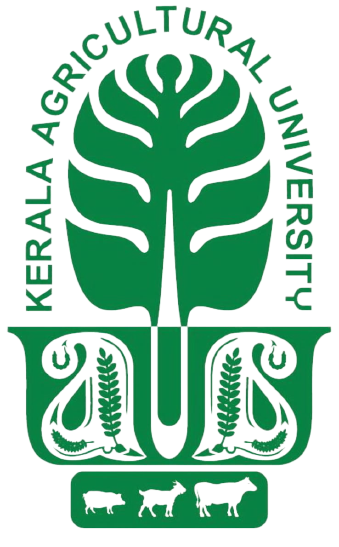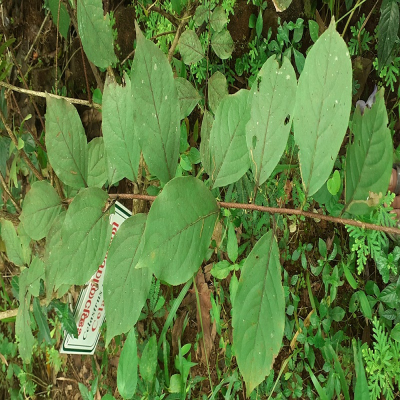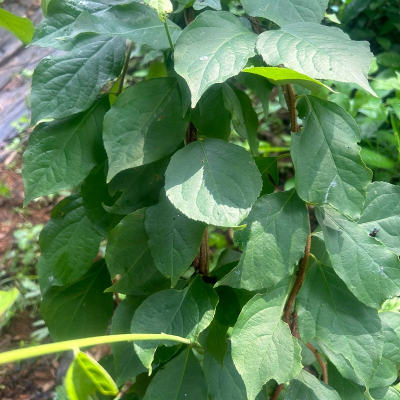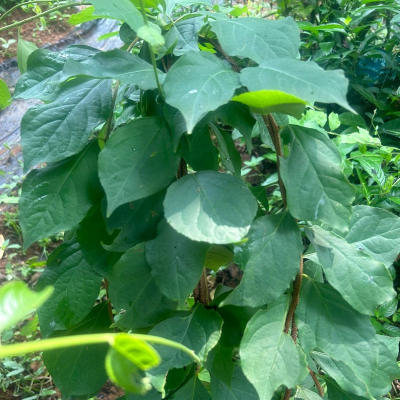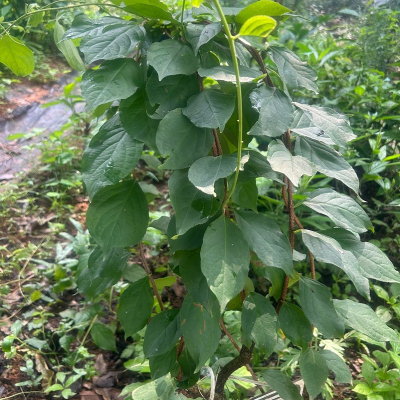Celastrus paniculatus Willd.
Synonyms : Celastrus montanaRoth , Celastrus multiflora Roxb.
Family : Celastraceae
Parts Used : Whole plant
Vernacular Names :-
| English | : | Climbing staff plant |
| Malayalam | : | Palauzhavam, Jyothismathi |
| Hindi | : | Malkangani, Sankhu,Sankhii |
| Sanskrit | : | Jyothismathi |
| Assamese | : | Malkangoni, Dhimarbel, Kanguni, Pigavi |
| Bengali | : | Kondgaidh |
| Gujarathi | : | Malkangana |
| Kannada | : | Kariganne,Korsana, Peng navbadhu |
| Tamil | : | Siruvaluluvai |
| Telungu | : | Danti Cettu, Gundumida |
Distribution and Habitat: Throughout India.
Botany: A large climbing unarmed shrub with 10 m high and long slender elongating branches which are reddish brown and covered with elongate white lenticels.
- Leaves: Simple alternate, ovate or obovate, crenulate, coriaceous, glabrous lateral nerves arching
- Flowers: Greenish white in terminal drooping panicles, unisexual, small
- Fruits: Capsules, 6-12 mm across, depressed globose, 3 lobed, bright yellow when ripe, opening to expose the brown seeds covered with orange red aril. 1-6 seeded, seeds ellipsoid or ovoid, 3-6 × 2.5-3.4 mm.
Properties: Depurative, Brain tonic. Seeds are bitter emetic, alterative, laxative, stimulant, nervine and aphrodisiac.
Chemical constituents: Acetic, benzoic, formic, linoleic, linolenic, palmitic and stearic acids. Celapagine, celapanigine, celapanine, celastrol, celastrine, polyhydric alcohol, malkanguniol, and four related alcohols etc from seeds.
Seeds also yield triterpines paniculatadiol, malkanguniol along with poly esters, β-amyrin, β-sitosterol, Malkangunin, celapanine and celapaningine.
Uses: It is used as emmenagogue, dysentery, abdominal disorders, paralysis, cerebral disorders, inflammations, depression, leprosy, beri-beri, rheumatic pains, eczema and pneumonia
Propagation: seeds
